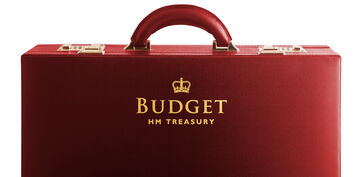No room for complacency on tax
David Prosser discusses this autumn’s Budget, resulting opportunity and how we could still save money by being more organised and strategic.
 And relax. In many ways, this autumn’s Budget was the dog that didn’t bark: despite predictions that the Chancellor would cut back in areas such as tax relief on pension savings, such incentives have survived, and the majority of people will be net beneficiaries from the package as a whole.
And relax. In many ways, this autumn’s Budget was the dog that didn’t bark: despite predictions that the Chancellor would cut back in areas such as tax relief on pension savings, such incentives have survived, and the majority of people will be net beneficiaries from the package as a whole.
However, while it would be easy to breathe a sigh of relief and go back to not worrying about your personal finances, this would be a mistake. For while we may not now be facing additional tax costs on our savings and investments, most of us could still save money by being more organised and strategic.
For many years, Unbiased, the organisation that promotes independent financial advice, published an annual survey looking into the unnecessary tax that Britons hand over to the taxman. The research has been discontinued – possibly because so few people heeded the warnings. In 2016, the last time Unbiased carried out the exercise, it estimated Britons were paying £4.6bn in unnecessary tax charges. There is little reason to think the figure will have come down since then.
Invest to save
Where does that huge sum come from? Missed savings opportunities accounted for the most sizeable proportion of the excess tax. In particular, Britons fail to use the generous allowances available from the Treasury on contributions to private pension plans, whether in the workplace or individually. They also fail to make good use of their annual individual savings allowance. Better use of pensions and Isas would have saved Britons £3.8bn in tax in 2016, Unbiased calculated.
What does that mean in practice? Well, on pensions, it means increasing your contributions in order to maximise the tax relief you’re entitled to. For most savers, the maximum they may pay into their pension each year is capped at the lower of their annual income or £40,000, but few are getting anywhere near this ceiling. Given that every £1 invested in a pension attracts income tax relief at your highest rate of marginal tax – worth 20p, 40p or 45p – this is expensive.
As for Isas, the annual allowance has been increased by around a third to £20,000 since that Unbiased research was published, so many savers today may be missing out on even more tax benefit than back then. If you have savings and investments held outside an Isa, you may be liable to income tax or capital gains tax on the returns – if not now, then in the future – so unused Isa allowance is wasted.
Plan ahead
All this said, there’s an old saying in finance that is worth keeping front of mind: never let the tax tail wag the investment dog. In other words, your financial planning decisions should be made according to what’s right for you, rather than simply to net a tax benefit.
That requires you to spend some time thinking about how you’re saving and investing for the future. What are your time horizons? Do you have a specific financial need in mind or a more general long-term aspiration to save? What is your attitude to risk? Are you able to tie up your money in long-term investments such as the stock market? Do you have a portfolio of investments that spreads your bets rather than putting all your eggs in one basket?
It’s also the case that the annual allowances for savings schemes such as pensions and Isas look out of reach for many people. But it’s worth remembering that you don’t have to invest in one go: the regular savings plans run by investment companies and others allow you to drip-feed money into such schemes. That can be a very effective way of building up significant sums over time.
Finally, if in doubt about how to make the most effective use of pensions and Isas – including how to be more tax efficient – take independent financial advice on your options. The original goal of Unbiased’s annual tax survey was to promote such advice; while the organisation may no longer be carrying out this research, the value of good-quality independent counsel on your finances remains as high as ever.







